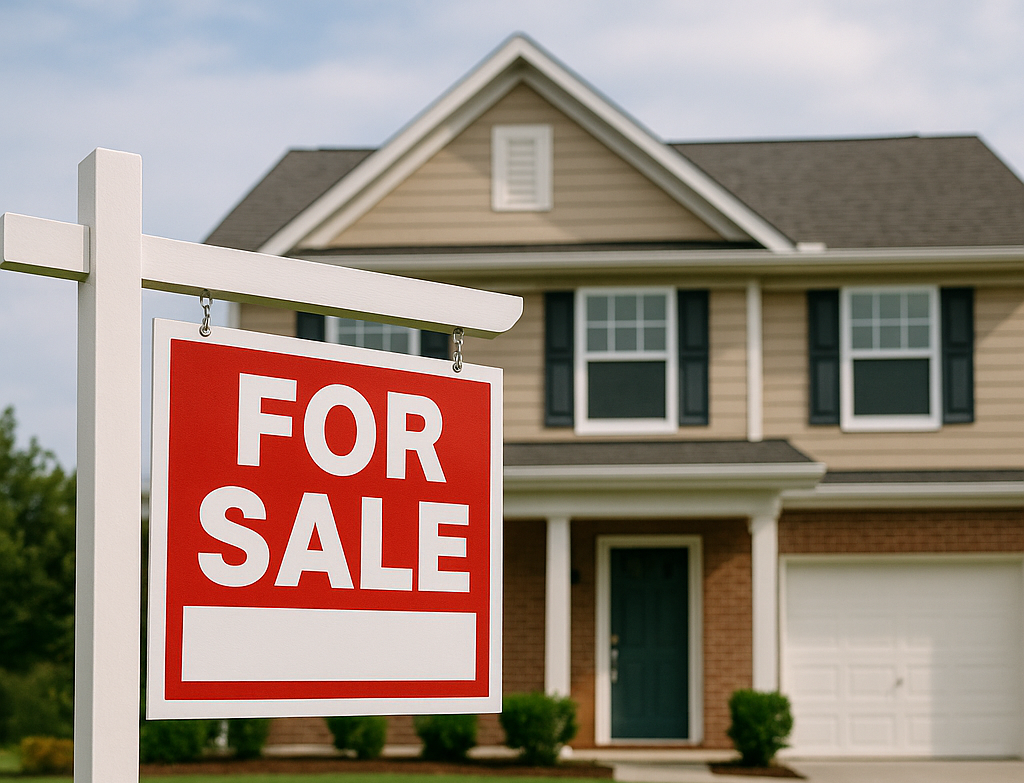Proven Tips for Quick and Efficient Home Sales
Curious about how to sell a house fast? Discover proven strategies without the hassle. From staging tips to pricing insights, we explore practical steps to boost your home's appeal. Learn how to sell a house fast by enhancing curb appeal and leveraging real estate trends.

Understanding the Real Estate Market
The real estate market can be unpredictable, with various factors influencing how quickly a property sells. Understanding whether you're in a buyer's or seller's market is crucial. In a seller's market, there are more buyers than homes available, which generally means homes sell faster and for higher prices. Conversely, a buyer's market sees more homes available than buyers, potentially leading to longer selling times and decreased property prices.

Research localized market trends to understand the current climate. Websites like Realtor.com and Redfin provide insightful data on housing market trends.
Setting the Right Price
Pricing your home correctly from the start is vital to selling quickly. If your home is priced too high, it might sit on the market without interest. Conversely, if it's too low, you might not get its full value. Conduct a comparative market analysis (CMA) to see how similar properties in your area are priced. Consider hiring a professional appraiser for an unbiased assessment.
Pricing tools like Zillow's Zestimate can offer a starting point, but always cross-reference these tools with real world data and professional advice.
Enhancing Curb Appeal
Your home’s exterior is the first thing potential buyers see. Prioritize curb appeal by maintaining your lawn, trimming shrubs, and planting colorful flowers. A well-kept exterior invites buyers to see more. Simple updates like a fresh coat of paint on the front door and updated lighting fixtures can also make a significant impact.
For inspiration on improving curb appeal, consider resources from Houzz or consult landscaping professionals.
Staging Your Home
Staging involves arranging furniture and decor to highlight a home’s strengths. First, declutter and depersonalize the space, allowing buyers to envision themselves living there. Neutral colors and simple designs create a welcoming environment. You don’t need to invest heavily in new furniture; often, rearranging existing pieces can improve flow in your home.
Professional stagers are available for consultation, or you can explore DIY staging tips on platforms like HGTV.
Effective Marketing Strategies
To sell your home quickly, it's critical to reach as many potential buyers as possible. Professional photography can capture your home's best features and make a strong first impression online. List your home on several platforms, including Zillow, Realtor.com, and the Multiple Listing Service (MLS) via a real estate agent.
Utilize social media channels like Facebook and Instagram to showcase your home to a broader audience. Creating virtual tours or hosting live streams can also attract tech-savvy buyers.
The Role of a Real Estate Agent
While some homeowners opt for selling their homes without an agent, a skilled real estate agent can be a significant asset. Agents bring expert knowledge of negotiation tactics, pricing strategy, and local markets. They also have extensive networks and marketing tools at their disposal, potentially speeding up the selling process.
Ensure you choose an agent with great reviews and a proven track record. Websites such as Rate My Agent can help you find qualified professionals based on past client reviews.
Handling Inspections and Repairs
Before listing, consider conducting a pre-inspection to identify and address any significant repairs that might delay the sale. Address issues like leaks, electrical problems, or faulty heating systems, as these can deter buyers or lead to a decrease in your offered price.
Transparency about repairs can also build trust with potential buyers, showing that you have maintained the property well. Document all repairs and updates to provide buyers with a comprehensive home history.
Flexible Showings and Open Houses
Accommodate prospective buyers by being flexible with viewing times. The more accessible your home, the higher the chance of early offers. Consider hosting an open house on weekends to attract casual lookers who might become serious buyers once they see your home.
Proper signage, both digital and physical, will help in directing traffic to your open house events.
Negotiating Offers
Once offers start coming in, meticulously review each. Don't rush to accept the first offer unless it meets or exceeds your asking price. Evaluate the buyer's financial situation and contingencies attached. An agent can prove invaluable in negotiating the best deal, including navigating bidding wars if you’re in a seller's market.
Closing the Sale
The closing process involves several steps, including appraisals, inspections, and financing approvals. Work closely with your real estate agent and attorney to ensure all documentation is accurately prepared and all legal aspects are considered to avoid delays or issues.
Staying informed and engaged throughout the process will bring you closer to a successful closing, transferring keys to new homeowners efficiently.